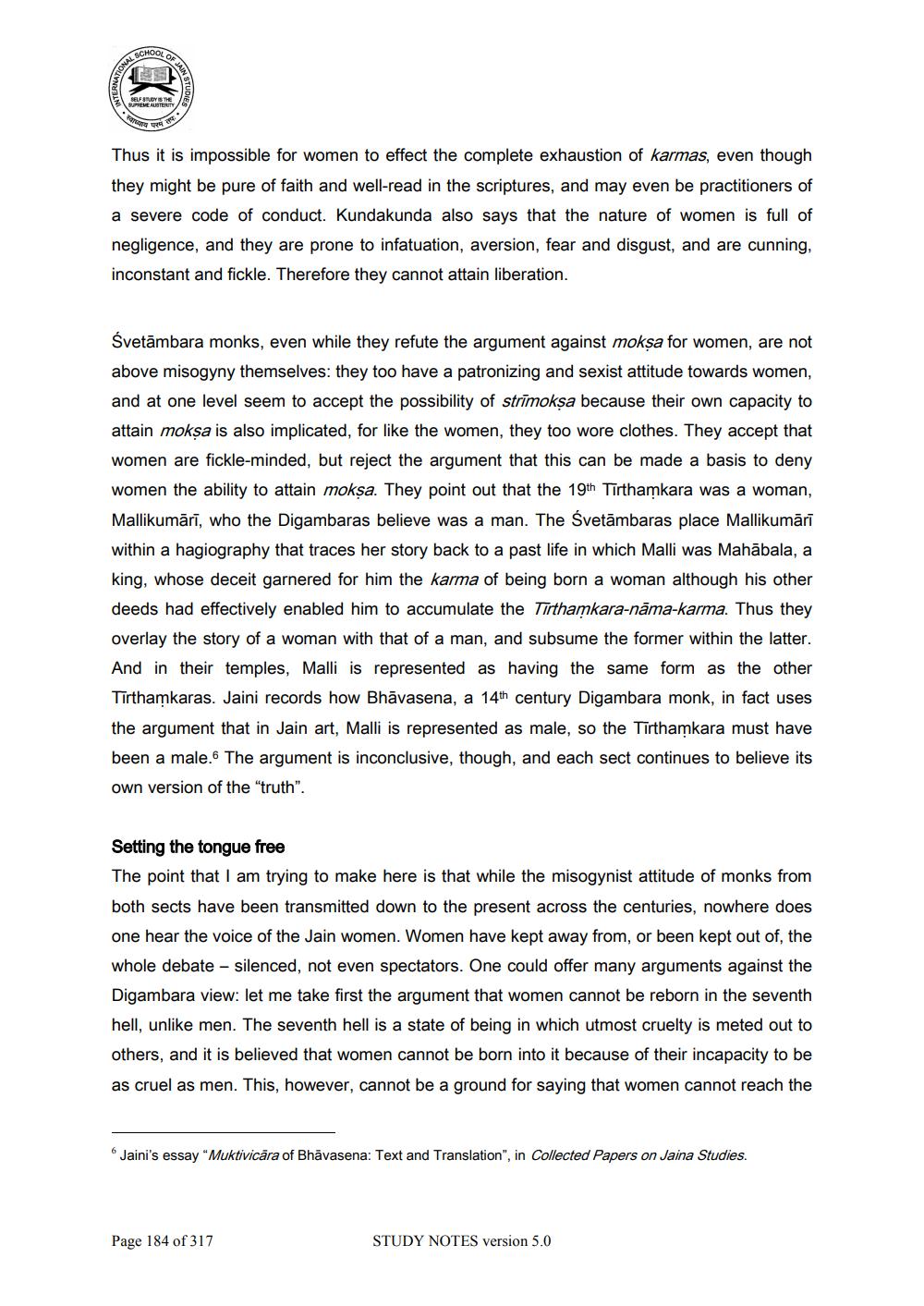________________
Thus it is impossible for women to effect the complete exhaustion of karmas, even though they might be pure of faith and well-read in the scriptures, and may even be practitioners of a severe code of conduct. Kundakunda also says that the nature of women is full of negligence, and they are prone to infatuation, aversion, fear and disgust, and are cunning, inconstant and fickle. Therefore they cannot attain liberation.
Svetāmbara monks, even while they refute the argument against moksa for women, are not above misogyny themselves: they too have a patronizing and sexist attitude towards women, and at one level seem to accept the possibility of strīmokṣa because their own capacity to attain mokṣa is also implicated, for like the women, they too wore clothes. They accept that women are fickle-minded, but reject the argument that this can be made a basis to deny women the ability to attain mokşa. They point out that the 19th Tirthamkara was a woman, Mallikumārī, who the Digambaras believe was a man. The Svetāmbaras place Mallikumārī within a hagiography that traces her story back to a past life in which Malli was Mahābala, a king, whose deceit garnered for him the karma of being born a woman although his other deeds had effectively enabled him to accumulate the Tirthamkara-nāma-karma. Thus they overlay the story of a woman with that of a man, and subsume the former within the latter. And in their temples, Malli is represented as having the same form as the other Tirthamkaras. Jaini records how Bhāvasena, a 14th century Digambara monk, in fact uses the argument that in Jain art, Malli is represented as male, so the Tirthamkara must have been a male. The argument is inconclusive, though, and each sect continues to believe its own version of the "truth".
Setting the tongue free The point that I am trying to make here is that while the misogynist attitude of monks from both sects have been transmitted down to the present across the centuries, nowhere does one hear the voice of the Jain women. Women have kept away from, or been kept out of, the whole debate - silenced, not even spectators. One could offer many arguments against the Digambara view: let me take first the argument that women cannot be reborn in the seventh hell, unlike men. The seventh hell is a state of being in which utmost cruelty is meted out to others, and it is believed that women cannot be born into it because of their incapacity to be as cruel as men. This, however, cannot be a ground for saying that women cannot reach the
“Jaini's essay "Muktivicāra of Bhāvasena: Text and Translation", in Collected Papers on Jaina Studies.
Page 184 of 317
STUDY NOTES version 5.0




